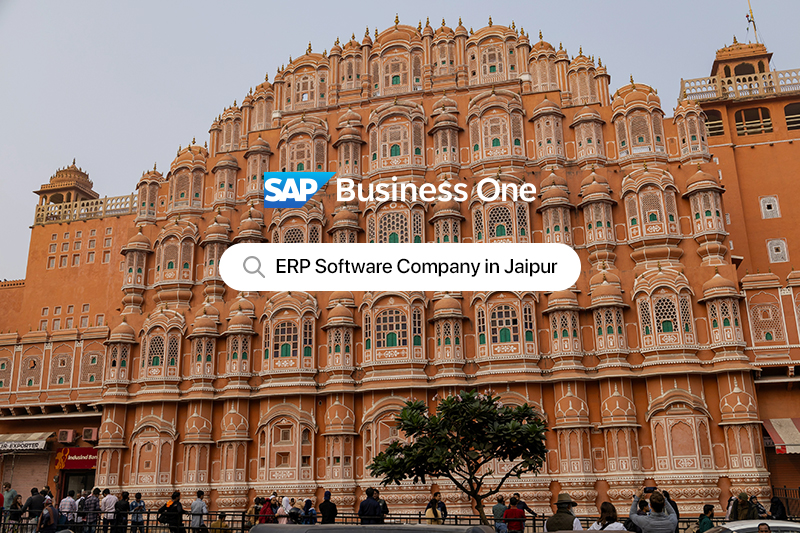If you’re running a business-to-business (B2B) e-commerce site in India and asking whether you should engage a Magento agency in India or invest in Magento development in India, then you’re already asking the right question. Whether your wholesale portal in Mumbai, your manufacturing distribution site in Delhi-NCR, or your export hub in Bangalore, the decision to move to (or upgrade) Magento (also known as Adobe Commerce) has far-reaching consequences. In this blog we’ll help you determine when the need is real, what warning signs to look for, how India-based expertise helps, and how to choose the right agency partner.
Why B2B is Different — And Why Magento Matters
A B2B website isn’t just a consumer-store. It involves volume ordering, tiered pricing, negotiated contracts, repeat customers, ERP/CRM integration, and complex workflows. Generic platforms struggle to handle such complexity. Magento (Adobe Commerce) stands out for its flexibility, enterprise features and scalability. Indian agencies have built deep expertise in Magento development in India and have proven track records. For example, India-based Magento development companies emphasise features such as scalability, security and continuous support.
India also offers cost-effectiveness, a large talent pool and time-zone advantages when choosing a Magento agency in India. If your B2B site is facing challenges, switching to Magento (or upgrading it) may be the right move.
Key Warning Signs Your B2B Website Needs a Magento Upgrade or Service
Here are clear indicators that your existing setup is restricting growth — and a Magento service would help.
Performance & Usability Issues
- Site becomes slow or unresponsive during bulk ordering, catalogue browsing, or multiple SKUs.
- Broken workflows: inability for customer log-in, contract pricing, repeated orders.
- Mobile experience is poor or inconsistent — whereas modern B2B buyers expect mobile-friendly portals.
Operational Bottlenecks & Integration Gaps
- You cannot integrate seamlessly with ERP/CRM/PIM systems (for example in Chennai manufacturing, Pune warehousing, or Kolkata distribution).
- Inventory, pricing, orders are inconsistent between your web front-end and back-end systems.
- Upgrades, patches, security updates are neglected: risk of vulnerabilities.
Growth / Scalability Limits
- Catalogue grows dramatically (hundreds/thousands of SKUs), but site architecture buckles.
- You want to expand into new markets (for example export from Hyderabad or join partners in Chandigarh) or add new channels, but your current platform won’t support it.
- You need advanced features like account-specific pricing, multi-warehouse, multi-currency and language support — standard platforms fall short.
SEO / Marketing Restrictions
- Your website architecture is not SEO-friendly: slow load times, poor URL control, lack of sitemap integration.
- You need rich B2B content, internationalisation, and full-scale digital marketing but are hampered by platform limitations.
- According to sources: Magento enables built-in SEO-friendly features (URLs, meta tags, sitemaps) and optimised performance.
If you tick several of these boxes, it’s a strong sign you should engage a Magento agency in India or invest in Magento development in India.
What a Magento Service from an Indian Agency Typically Includes
When you hire a good Magento agency in India, the service will typically cover the following:
Core Development & Setup
- Magento store architecture and theme development suited for B2B front-end.
- Custom module development: quote workflow, tiered pricing, quick order, bulk upload.
- Responsive design for desktop and mobile.
- Optimised performance: caching, database tuning, CDN, etc.
Integration & Extensions
- ERP/CRM/PIM integration (SAP Business One, Microsoft Dynamics, etc).
- Payment gateway, shipping & logistics integrations (especially relevant for Indian markets like Jaipur, Ahmedabad, Chandigarh).
- Extension customisation and third-party plug-in installation.
Migration & Upgrades
- Upgrading from older Magento versions to latest Magento 2 or Adobe Commerce.
- Data migration: customers, orders, SKUs.
- Minimising downtime and disruption.
Support, Maintenance & Security
- Ongoing patching and updates. Indian agencies highlight “bug-free & secure development” in their proposition.
- Service-level agreements (SLAs) for critical issues.
- Performance monitoring and optimisation.
B2B-Specific Features
- Multi-company account structure, shared catalogues, contract management.
- Real-time inventory, pricing by customer or region.
- Self-service portals for repeat orders. This aligns with B2B features in Indian market references.
SEO & Digital Marketing Alignment
- Platform built to support SEO, content marketing, internationalisation (India → global).
- Clean URLs, sitemaps, fast page loads — strengths of Magento.
-
Why India is a Smart Choice for Magento Development
Working with an agency in India offers distinct advantages:
- Cost-effective: Compared to Western Europe or US agencies, India offers high quality at lower cost.
- Large talent pool: Many Indian developers are certified and experienced in Magento.
- Time-zone advantage: Indian agencies can provide near 24/7 development cycles due to different local time zones.
- English proficiency: Communication barriers are minimal, which is critical for technical collaboration.
- Specialised B2B capability: Several Indian agencies focus specifically on Magento B2B solutions.
If your business is based in Delhi, Mumbai, Bangalore, Hyderabad or Chennai and you serve both Indian and international buyers, partnering with a Magento agency in India makes operational and strategic sense.
When Magento Might Not Be Necessary
Before jumping in, there are cases when a full Magento implementation may not be required:
- If your business is purely B2C, low volume, simple product set, then a lighter platform may suffice.
- If your order volumes are very low, or you don’t need complex workflows.
- If you plan only a temporary pilot store and want minimal investment.
However, for B2B operations with growth ambitions, volume orders and integration needs, Magento remains one of the strongest choices.
How to Choose the Right Magento Agency in India
Selecting the correct agency is just as important as choosing Magento. Here’s a checklist:
Checklist for Selection
- Look for agencies with Magento certified developers and strong Indian market experience.
- Review their B2B case studies (distribution, manufacturing, wholesale) and references in Indian cities or export markets.
- Check their service offering: development, integration, support, SEO.
- Evaluate the service package structure: Indian companies often publish packages for Magento services.
- Ensure they provide ongoing maintenance and support, not just launch.
- Confirm they handle security & compliance, scale & performance.
- Negotiate clear deliverables, timelines, budget, and scope.
- Communication & cultural fit: ensure smooth collaboration across India-headquartered teams (e.g., in Gurgaon, Bangalore) or remote.
- Ask for SEO/marketing alignment since your platform should support growth, not just be a technical build.
Roadmap: Engaging a Magento Agency in India for Your B2B Website
Here’s a step-by-step approach:
- Audit your existing website: Load-times, workflows, integrations, pain-points.
- Define your requirements: Volume of SKUs, pricing tiers, customer roles, geography, integrations.
- Shortlist 2-3 Indian Magento agencies: Use criteria above.
- Request proposals: Scope, deliverables, timelines, budget, ongoing support.
- Pilot or proof-of-concept: Start with a limited module or workflow to validate partner.
- Full build / migration: Execute development, test thoroughly, migrate data.
- Launch & optimise: Post-launch monitoring, performance tuning, SEO work.
- Ongoing support and growth: Scale features, international expansion, mobile optimisation.
-
Case Hypothetical: Indian Distribution Business
Imagine a B2B distribution company based in Kolkata with warehouses in Mumbai and Chennai. It struggles with: large product catalog (20,000 SKUs), regional pricing, manual quote approvals, slow website. They partner with a Magento agency in India (based in Bangalore). The agency audits the current site, builds a Magento store with custom modules (quick reorder, quote request, tier pricing), integrates with their ERP, optimises site speed and launches in three Indian regions. Post-launch they see 40 % faster order processing, 25 % more repeat orders, and expansion into Southeast Asia. This scenario aligns with what Indian Magento agencies deliver.
-
FAQs – Frequently Asked Questions
Q 1: What minimum investment do I need for Magento development in India for a B2B site?
A: It depends on scope (catalog size, integrations, custom modules). Indian agencies publish tiered packages.
Q 2: How long does it take for Magento development in India?
A: For a full B2B site with integrations, 3-6 months is common. Pilot modules may launch faster.
Q 3: Can we migrate from our current platform (e.g. Shopify, WooCommerce) to Magento?
A: Yes. Indian agencies specialise in migrations and upgrades.
Q 4: Will our site be SEO friendly if we switch to Magento?
A: Yes – Magento supports SEO features out of the box (URLs, meta, sitemaps) and Indian experts emphasise optimisation.
Q 5: How do we choose between local Indian partner vs offshore?
A: Indian agencies offer both cost and local expertise. Time-zone, communication and domain experience matter.
People Also Ask – Quick Answers
- Does Magento work for B2B websites? — Yes — Magento supports B2B features like corporate accounts, tier pricing, wholesale workflows.
- Why hire a Magento agency in India instead of doing it in-house? — To access certified talent, cost-efficient skills, and proven Indian market experience.
- Is Magento overkill for small B2B businesses? — Possibly if you’re very small with simple needs. Otherwise, its scalability makes it future-proof.
- What are typical Indian price ranges for Magento development? — Indian firms offer tiered service packages (basic to enterprise) — check industry-benchmarks.
The Takeaway
If you’re running a B2B e-commerce site in India (or globally) and you encounter performance, growth, integration or SEO pain-points, then yes — you do need to evaluate a Magento agency in India and invest in Magento development in India. Choosing the right partner, defining your business goals and aligning the technology will make the difference between a website that holds you back and one that amplifies your business.











 Applicable for Package
Applicable for Package Optional
Optional